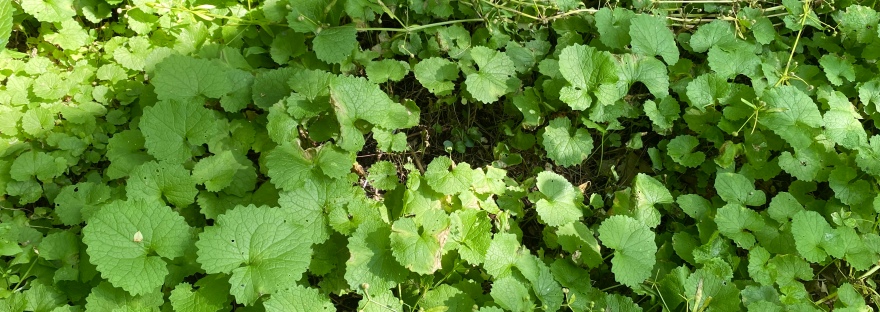Summary:
This is episode number 32 and today we are diving into the world of Mustards! This episode was inspired after hearing many complain about and spray herbicides on garlic mustard. Many of us have been told that garlic mustard is an “invasive species”, and yet, I have learned that all plants have strengths and weaknesses! Today is about recognizing the amazing benefits of the mustard family, including and especially, garlic mustard!
Today’s plant feature will be totally new! Today, my friend Kyle Denton who is the herbalist and owner of Tippecanoe Herbs in Milwaukee Wisconsin, will be my in-house expert on all things Wild Mustard! If you want to know a little bit about Kyle and his background, he was on episode number 23.
And while I will play the part of interviewer today, the next 2 plant features will be a Tippecanoe takeover, as in Kyle will be choosing 2 plants to feature, sometime mid summer and sometime later summer/early fall, and he will be sharing all the things with us, on this podcast! I am so thrilled for this transition, and I am hopeful you will love the plant features, as well as love a different and arguably more educated voice in the realm of plants and the way they can influence us, our families, and the landscapes around us!

In This Episode You will Learn:
- Mustard is part of the Brassicaceae family.
- Mustard grow all around the world, and even in the Arctic circle. They can grow in very harsh environments.
- Holistic approach to healing the land and our bodies.
- How the invasive nature of garlic mustard can teach us about the land and the way plants, animals, and soil is working.
- Etymology of the word “Muster” or “Mustard” (Latin word to “invite spice”)
- Why Kyle calls Garlic mustard the “Superman” of superfoods! 🙂
- Garlic mustard needs to be picked season to have the correct spice level.
- Other types of mustard: Dame’s Rocket (can help prepare out digestive tract to receive a meal), Winter cress Barbarea vulgaris, & Shepherd’s Purse.
- Pulling Garlic Mustard is not only futile but potentially detrimental to the natural process of regenerating the land. Examples of other plants that were called “invasive” but ran their course, and are no longer labeled “problematic.”
- Best ways to learn about and use plants. Start with a personal knowledge and experience and then back that up with historical and scientific research.

Mustard Benefits to Nature:
- Mustard grows when a lot of the grass has been eaten (maybe an overpopulation of deer?) and maybe an incorrect soil microbiome. Therefore, mustard can reveal a lot of evidence about the soil and what is happening in nature.
- Some of the first plants to break through the soil in the spring.
- Garlic mustard is called “invasive”, but there is nuance to this word and this mentality should be considered.

Mustard Benefits to Mankind:
- Immune boosting
- Boosting to courage/confidence
- Culinary spice, peppery, invigorating
- Medicinal actions: Astringent, Calming effect on the lungs, Makes the nose run/mucous thinning effect, can break up congestion.
- Shepherd’s Purse is used for an astringent, which means, it tightens. It can tighten the sinuses or the mucus in our lungs. It is often used for postpartum hemorrhages.
- Dame’s Rocket, Hesperis matronalis, is edible and good for helping our bodies prepare for digestion or receive a meal.
- All mustards would be beneficial for sore or fatigued throats.
- Mustards can create courage physically and energetically.

Photo is Public Domain


Practical Uses/Recipes/How to Use:
- Garlic/Wild Mustard leaves can be eaten raw
- Garlic/Wild leaves can be used to make a tincture.
- Mustard spices can be used in foods or drinks
- Flowers can be eaten (very peppery & invigorating)
- Mustards can be used as a tea or as a poultice.
**Please again, always be sure you can positively identify a plant before harvesting.***
Resources Mentioned/Used:
Sponsors:
This show is brought to you by ME and my super supportive family!
Tippecanoe Herbs continues to partner with this podcast, and I can confidently recommend all of their products!
KION, is another partner of this podcast, and I would love you to check them out!
Intro/Outro Music: “A Wee Tipple” by Scott Holmes

